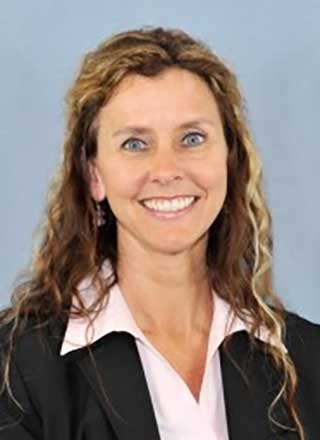|
By Allison Davis Maxon, LMFT  Families built through adoption, foster care and kinship care have unique needs and challenges throughout each developmental phase of their family’s life cycle. Unfortunately, the complexities of adopting a child with a history of neglect, trauma and/or multiple attachment disruptions can quickly overwhelm even the healthiest of family systems. Without specialized, adoption/permanency competent mental health supportive services too many children and youth will disrupt from their newly formed families. For youth in foster care ages 12-17, the disruption rate is 25%. Each subsequent move furthers the child’s belief that they are unlovable and deepens the well of pain they carry into their next ‘placement’ or family. It is not enough to simply find families for the child welfare systems waiting children, it is imperative that clinicians have specialized training to become adoption/permanency competent. For the courageous parents who are willing to open their hearts and homes to our community’s most impacted children and youth, they both need and deserve the specialized mental health services that will assist them in successfully parenting a child with complex and/or relational trauma.
What is Adoption/Permanence Clinical Competence?
On Sept 29, 2014 AB 1790 (DICKINSON) Adoption: Adoption Permanence Competent Clinicians bill was signed by Governor Brown. This is the first legislation in the country to address the need for adoption and permanence competent mental health providers. The goal of AB 1790 is to improve the stability of adoptive and guardianship families by increasing the pool of adoption/permanence competent mental health professionals. W & I Code 16125 requires that medical necessary specialty mental health services be provided former foster children whose adoptions have become final. Adopted children and their families have a profound need for therapeutic support by mental health professionals during the crisis stage of placement when the child and family are most vulnerable to disruption (and prior to the development of a secure parent-child attachment relationship). The serious shortage of adoption competent service providers that fully understand and appreciate these complex issues frequently leads to families feeling isolated, frustrated and hopeless, often leading to disrupted adoptions or foster care placements, and children being placed in group homes or residential treatment centers.
Barriers to Adoption
Today, the majority of adoptions finalized across the country are adoptions from the foster care system. This significant increase over the past two decades of public sector adoptions has meant that the majority of adoptions are no longer private infant adoptions. The average age of our systems waiting children is 6.2 years. This means that we are now asking prospective adoptive families to adopt children with significant histories of neglect, trauma, violence, in-utero exposure to drugs/alcohol and/or multiple disruptions in primary attachment relationships. Research shows that there are more than enough families interested in adopting children from foster care but one of the main barriers is the lack of post adoption/permanence support. Too often, adoptive parents seeking mental health services for their children and family find that clinical providers do not understand the unique complexities associated with their life experiences and/or often intervene in ways that are unhelpful and that sometimes even compound their problems (Brodzinsky, 2013; Smith, 2014). More evidence-based practices are needed which address the nature of complex trauma as well as attachment and identity issues and other co-existing developmental challenges confronting these children (Smith, 2014).
Adoption/Permanence Clinical Competence
A family systems, attachment-based and trauma-informed orientation which allows clinicians to engage the entire family system in the treatment process is critical. The underlying belief in this model is that the family system is the healing mechanism for the child. Healing occurs within and through the context of a healing relationship. For children who have suffered through years of chronic abuse, neglect, violence and trauma . . . trusting and depending on new caregivers does not come easily. Adoption and permanency creates issues related to attachment, abandonment, grief/loss, identity formation, intimacy and mastery/control that are both complex and lifelong for children, foster/adoptive parents/caregivers, and birth families. Unfortunately, when these newly formed families do not get the specialized adoption/permanency competent mental health services they need . . . placements disrupt, and the cycle of foster care drift continues for the child. About the Author...
Allison is a nationally recognized expert in the fields of child welfare and children’s mental health. She specializes in Attachment, Trauma and Permanency/Adoption. She is a clinician, educator and advocate who is passionate about creating Systems of Care that are adoption/permanency competent and strengths based. Allison provides training, speaking and consultation services on a wide range of topics including strengthening Systems of Care, children’s mental health issues, trauma-informed care, adoption clinical competence, family assessment, adoption/permanency, developmental trauma, attachment, family attachment therapy, kinship care, transitional age youth and others. She has presented at national, state and local mental health and child welfare conferences including the Child Welfare League of America, the North American Council on Adoptable Children, San Diego County Children’s System of Care Training Academy and the prestigious Georgetown University National Symposium on Children’s Mental Health Systems of Care. Last Update: 5/25/2017
|

